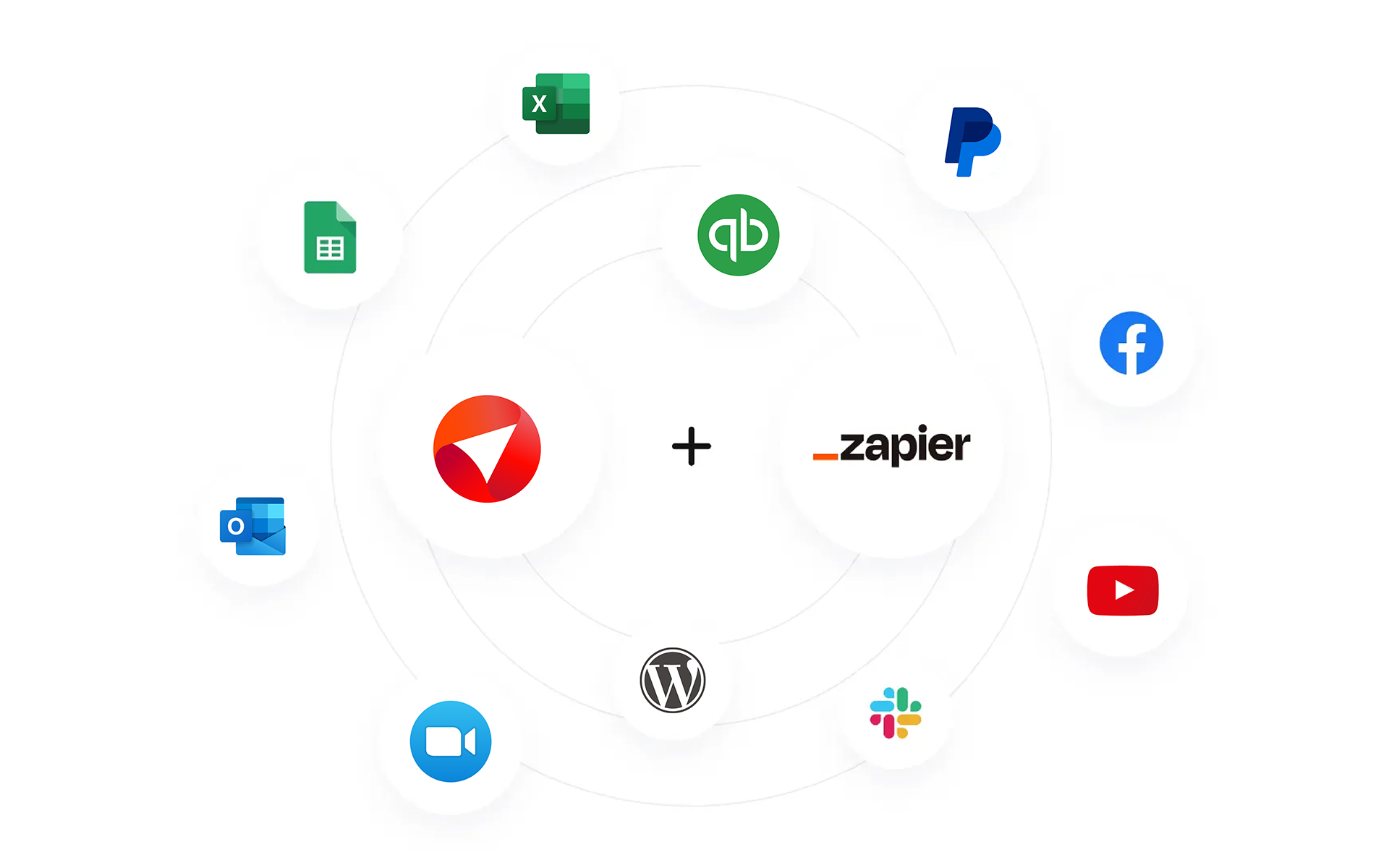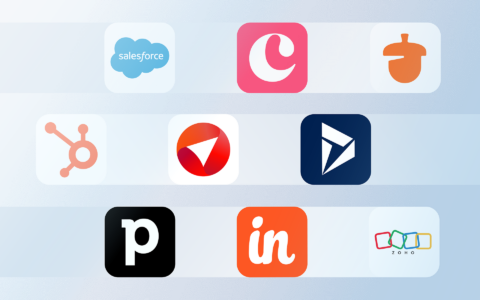In modern business, the quest for efficiency has never been more critical. Imagine the harmonious hum of a well-oiled machine; a business where each cog, each member, seamlessly contributes, and customer demands are not just met but anticipated.
It's an idyllic vision, isn't it? The linchpin in achieving this? CRM (Customer Relationship Management) systems.

These aren't just tools; they're powerhouses that drive organization, foster improved client relationships, and push the sales graph ever upward. Stats show that by implementing a CRM, sales can improve by 29%.
Now, consider the opposite: a dynamic business without the guiding hand of a CRM. The possibility of disarray looms large. Amidst this backdrop, the importance of a CRM system, especially one that synergizes perfectly with widely used platforms like Office 365, cannot be understated.
As we journey ahead, we'll discuss the transformative impact of CRM systems on businesses. We will cast a spotlight on one particularly potent contender in this domain: eWay-CRM. We will also look at how this best CRM for Microsoft 365 weighs up against other options on the market.
Whether you're a seasoned professional or a business newbie, the insights ahead promise a fresh perspective on ensuring your business doesn't just succeed but thrives.
Many businesses have adopted, or are planning to adopt a CRM to help organize their business. And the stats prove this, with Grandview Research forecasting that the CRM market is expected to achieve over $80 billion in revenue by 2025.
Table of Contents:
Why Businesses Need a CRM?
The Organizational Needs of Modern Businesses
Criteria for Choosing a CRM: Key Factors to Consider
The eWay-CRM Advantage: Choosing CRM for Microsoft 365
Evaluating CRM Options: A Comparative Overview
SONET's Journey to eWay-CRM: A Case Study
The CRM Choice as a Strategic Decision
Why Businesses Need a CRM?
Step into the frenzied world of business today. A realm where interactions happen in split seconds, decisions are made on the fly, and customer demands evolve at a dizzying speed.
Now, imagine navigating this world without a compass, without a map. It's a daunting prospect.
And for businesses, a CRM system is that compass, that map, guiding them safely through the maze of complexities of the modern corporate landscape.
A World Without CRM
Think of a situation where each customer inquiry becomes a game of pass-the-parcel. Inquiries get lost in the void, important interactions are missed, and sales opportunities, which could have transformed the bottom line, vanish into thin air.
It's a chaotic world, characterized by disorganization and missed potentials, where growth is not just stunted but can come to a screeching halt.

Every Inquiry as a Potential Lead
On the flip side, in a CRM-enabled setting, every inquiry shines like a beacon. It's not just a message; it's a potential lead.
CRM systems ensure that every bit of communication is categorized, every query is addressed, and every sales opportunity is capitalized on. It's about harnessing potential. It’s also about turning every interaction into a stepping stone towards success. In fact, 47% of businesses using a CRM have seen a big improvement in their customer satisfaction rates.
In essence, while businesses can choose to exist without a CRM, doing so is similar to sailing stormy seas without a rudder. It's possible, but fraught with danger, inefficiencies, and missed opportunities. The power of a CRM doesn't just lie in its ability to organize; it's in its capacity to transform.
The Organizational Needs of Modern Businesses
To thrive and stay ahead of competitors, businesses must understand and address the multifaceted organizational needs that characterize the current era. It is after all an era where customer expectations for flawless, personal service are greater than ever.

So let’s explore some more of these organizational needs:
A Dynamic Business Environment
Businesses operate in a sphere where change is constant. Beyond mere adaptability, there's a pressing need for proactivity—to anticipate shifts in market demands and adjust accordingly. Customers expect swift responses, bespoke services, and unmatched quality. Staying organized in such a realm isn't a luxury; it’s an absolute necessity.
Centralized Information
As businesses grow and diversify, information becomes scattered across various platforms and channels. A centralized system is indispensable, ensuring that data is not only accessible but also up-to-date. This consolidated view allows for informed decisions, streamlined operations, and a unified approach to diverse business challenges.
Task Management
To stay afloat and ahead in the business world, efficient task management is non-negotiable. Companies need systems to assign, monitor, and track tasks, ensuring timely completion and accountability.
Proper task management eliminates the chances of overlooked responsibilities and enables teams to prioritize their work, resulting in improved productivity and ensuring that projects progress as intended.
Collaboration and Team Synergy
Modern businesses are often characterized by dispersed teams—across cities, countries, or even continents. The importance of tools that promote seamless collaboration can't be overstated. A synchronized team, irrespective of physical location, can drive initiatives forward with efficiency and cohesion.

Inquiry Management
The volume of inquiries bombarding businesses from all fronts is staggering. Whether via email, social media, direct calls, or other channels, each inquiry represents potential growth. It's imperative not only to capture and categorize these interactions but to engage with them promptly and meaningfully.
Task Automation
Imagine task automation as a reliable helper that's always there to remind you of important tasks. It makes sure things get done without you having to remember every little detail. This not only saves time but also ensures that nothing important gets overlooked.
For instance, if a business needs to send follow-up emails to clients, rather than trying to remember to do it every time, automation can handle it. Just set it up once, and the system will send reminders or emails at the right times. It’s like setting a recurring alarm.
Scalability and Flexibility
Today’s businesses require systems that can grow with them. As expansions or pivots occur, the infrastructure should support that growth without major overhauls. Flexible systems ensure that the business remains agile, adjusting to market fluctuations or internal changes.
In a nutshell, the organizational demands of modern businesses go beyond mere systematization. They encompass a need for agility, collaboration, and centralized control, all aiming to steer the company toward sustained growth and success.
Criteria for Choosing a CRM: Key Factors to Consider
Ease of Use
An effective CRM isn't just about features—it's about usability. Even the most advanced CRM can become redundant if it’s too complicated for staff to navigate. User-centric design, interactive tutorials, and a clean interface can make the difference between a CRM that's actively utilized and one that's relegated to the digital background.
Integration Capacity
The capacity of a CRM system to integrate effortlessly with crucial software tools, particularly email clients, stands as a pivotal criterion for many enterprises. Consider, for instance, the enhanced efficiency stemming from a CRM that integrates seamlessly with Outlook.
This isn't merely about juxtaposing two platforms but creating a cohesive ecosystem where correspondence, be it emails, meetings, or tasks, is managed centrally. Such integration eliminates the time-consuming and often error-prone dance of switching between platforms, leading to heightened productivity.
Automated data entry from emails directly populates the CRM, which not only eradicates manual errors but also ensures real-time updates. Sales representatives, armed with combined email histories and CRM data, are thereby equipped for richer, more insightful customer interactions.

Broadening the integration horizon, platforms like Zapier present another layer of functionality, allowing CRMs to connect with a multitude of apps, thus extending their operational potential. Automated workflows, comprehensive data centralization, and enhanced reporting become feasible, streamlining myriad operations.
With such capabilities, businesses can automate repetitive tasks, maintain data consistency across platforms, and garner comprehensive insights, elevating the overall decision-making process.
Mobility and Connectivity
In an era defined by mobility and globalization, it's imperative that CRM tools support seamless remote operations. Cloud-enabled CRMs ensure data is accessible from any location, while mobile options mean professionals aren't tethered to their desks. This facilitates timely decision-making and uninterrupted workflows, key ingredients for efficiency.
Collaboration and Centralization
Modern businesses thrive on collaboration. CRMs that offer features allowing teams to collaborate in real time can elevate productivity. Centralized information repositories ensure all team members have access to the same updated data, eliminating redundancies and facilitating more informed discussions.
Analytics and Data Management
Decision-making powered by data is a hallmark of successful modern businesses. A CRM's ability to provide comprehensive data analytics—offering insights into customer behavior, sales trends, and marketing ROI—can be invaluable. Tools that simplify complex data sets, visualizing them in easily interpretable formats, offer businesses a clearer path forward.
Support and Accessibility
The technical robustness of a CRM is as important as the human support backing it. Round-the-clock customer support, a resourceful knowledge base, and regular software updates reflect a CRM's commitment to its users. In moments of technical glitches or uncertainties, accessible and prompt support can mean the difference between a minor hiccup and a significant disruption. Many businesses rely on a cloud contact center to deliver this level of responsive service, ensuring that customer issues are resolved quickly and efficiently.
Pricing and Scalability
Financial flexibility is crucial. The ideal CRM offers options catering to businesses of all scales. This includes cost-effective solutions for SMEs, scalable models for growing entities, and comprehensive packages for established enterprises. Transparent pricing without hidden costs instills trust, ensuring businesses can budget effectively.
Essential CRM Modules
Diverse businesses have varied needs. This is where the modular nature of CRMs shines.
With this in mind, there are several essential modules one should be looking out for when choosing the best CRM business solution:
Contact and Companies Module and its features:
- Contact Management: An effective CRM system provides an organized way to store and retrieve information about contacts and companies.
- Synchronization: With real-time synchronization with smartphones, businesses can ensure that the team has the most updated contact information, even on the go.
- Customization: With categories and custom fields, businesses can tailor their CRM to their specific needs, facilitating more granular and relevant data organization.
- Email Tracking: Automated email tracking provides a clear picture of communication history, aiding in keeping conversations contextual and relevant.
- Notes & Follow-ups: Documenting interactions like meetings, calls, and other touchpoints help in staying on top of commitments and ensures effective follow-up.
- User Rights: Managing accessibility ensures data integrity, prevents unauthorized modifications, and enforces data privacy.
Key Takeaway: Effective contact management fosters improved communication, ensures no opportunity slips through, and enhances customer relations.
Sales Module and its features:
- Unified Dashboard: A centralized view of all deals and leads accelerates decision-making and provides clarity in sales strategies.
- Integration: By integrating with web forms and lead generation tools, businesses can capture leads at multiple touchpoints, ensuring no potential client is missed.
- Comprehensive Records: A centralized record of emails, notes, and documents related to a sale keeps the sales process transparent and informed.
- Timely Reminders: Automated reminders ensure follow-ups are timely, enhancing the chances of conversions.
- Automated Workflows: Streamlined processes reduce the manual workload and increase sales efficiency.
- Analytics: Real-time sales data analytics offer insights into trends, helping businesses adjust strategies accordingly.
Key Takeaway: The sales module aids businesses in effectively managing their sales funnel, ensuring maximized conversions and increased revenue.
A Project Management Module and its Features:
- Delivery Tracking: By monitoring the progress, businesses can ensure timely delivery, leading to enhanced client satisfaction.
- Hierarchical Tasking: Breaking projects into actionable steps aids in delegation, resource allocation, and timely completion.
- Unified Communication: Centralized communication ensures everyone is informed, reducing misunderstandings and promoting collaboration.
- Financial Overview: By monitoring financials, businesses can ensure projects remain profitable and within budget.
- Time Management: Timesheets allow for efficient resource allocation and billing, ensuring profitability and accountability.
Key Takeaway: The project management module ensures timely delivery, optimized resource utilization, and increased project profitability.
An Email Marketing Module and its Features:
- Integrated Marketing: By integrating marketing efforts into the CRM, businesses can ensure consistent messaging and tracking.
- Templates: Ready-to-use templates reduce effort and ensure the business projects a professional image in all communications.
- Behavior Analytics: Insights into user behavior can guide future campaigns, optimizing for better engagement.
- Heatmaps: Visual cues on what grabs attention in emails help businesses focus on the most engaging content.
- Conversion Tools: Efficient tools and analytics enable businesses to nurture leads and convert potentials into sales effectively.
Key Takeaway: An email marketing module empowers businesses to execute effective campaigns, engage better with their audience, and drive conversions.
The eWay-CRM Advantage: Choosing CRM for Microsoft 365
While many CRM systems tout a variety of features and capabilities, it's crucial to focus on those solutions that truly encapsulate the needs and challenges of modern businesses.
eWay-CRM stands out in this regard for a number of reasons:
- The Outlook Advantage with eWay-CRM: eWay-CRM's synergy with Outlook represents integration at its finest. This isn't a mere pairing of tools but a holistic fusion that brings a multitude of advantages to the table. With such integration, all correspondence, whether emails, meetings, or tasks, gets a centralized management hub.
The constant switching between platforms becomes a relic of the past, leading to enhanced productivity. Automated data entry takes the reins, as information from emails is directly populated into the CRM, eliminating manual errors and redundancies.
Moreover, the synchronization of contacts ensures client data remains updated, while task and calendar integrations make scheduling and reminders effortlessly coherent.
Perhaps the most significant boon is for the sales representatives who, equipped with combined email histories and CRM data, are poised for more insightful customer interactions.
- User-friendly Alternative: While many renowned CRMs like Hubspot and Zoho have made their mark in the industry, eWay-CRM offers a unique proposition - unparalleled ease of use. For businesses, this translates to quicker adoption rates, lesser training requirements, and, most importantly, higher productivity as employees can seamlessly integrate the tool into their daily tasks.
- Integration Excellence: Aside from eWay-CRMs seamless alignment with Outlook, it also offers a whole host of other integrations. From bookkeeping efficiency with Quickbooks, to the collaborative power of Microsoft Teams, eWay-CRM has it covered. This is largely thanks to its integration with Zapier which gives secure access to over 2000 essential business apps.
- All the Essential Modules: Designed with modern enterprises in mind, eWay-CRM comes pre-loaded with all the essential modules a company could need. From contact management and project tracking to sales insights and email marketing capabilities, this platform seamlessly integrates every facet of customer relationship management.The benefit?
Businesses no longer have to juggle multiple tools or invest in add-ons. With eWay-CRM, you get a comprehensive suite right out of the box, streamlining operations and ensuring consistency in every interaction.
- Pricing: True to its commitment to businesses, especially the small to medium ones, eWay-CRM offers a robust free plan that provides ample features to kickstart one’s CRM journey. Recognizing the constraints and challenges of small businesses, this gesture ensures they aren’t left behind, offering them a platform to streamline their operations without significant financial burdens.
For those looking to upgrade, eWay-CRM has tiered plans that cater to various business sizes and requirements, making it a flexible and budget-friendly choice.
The benefits of a robust CRM are countless. In fact, Finances Online reports that CRM can boost conversion rates by a huge 300%
Evaluating CRM Options: A Comparative Overview
Pipedrive:
Description: Pipedrive is laser-focused on sales processes. Designed with a clear and user-friendly interface, it primarily aids sales teams in effectively managing leads, overseeing deals, automating tasks, and ensuring uninterrupted communication flow. Its emphasis is on visual sales pipelines, offering clarity at every stage.
Pipedrive Pricing: The Pipedrive cost is related to tiers, starting with Essential, moving to Advanced, Professional, and then to the Enterprise level.
Pipedrive vs eWay-CRM: While Pipedrive shines in sales process visualization, eWay-CRM boasts high adoptability among teams due to its intuitive interface and emphasis on user experience. The customization offered by eWay-CRM ensures businesses only focus on features they need, eliminating potential redundancies.
Act!:
Description: A stalwart in the CRM realm, Act! combines the strengths of contact management with the prowess of marketing automation. It caters particularly to small and medium enterprises, aiming to streamline their operations and bolster marketing efforts.
Act! Pricing: The Act! cost is for various budgets, with varied options from Starter to Premier and Ultimate. Additionally, they provide an Act! Growth Suite based on feature requirements.
Act! vs eWay-CRM: Act! offers extensive CRM functionalities. In contrast, eWay-CRM stands out with its strong Office 365 integrations, a boon for businesses deeply engaged with Microsoft tools.
Insightly:
Description: Merging the domains of CRM and project management, Insightly stands out for businesses requiring meticulous tracking of client projects alongside customer relationship endeavors. Its dual functionality means businesses can oversee projects and maintain customer relations simultaneously.
Insightly Pricing: The Insightly cost is tiered: Plus, Professional, and Enterprise.
Insightly vs eWay-CRM: Insightly's strength lies in project management integration. In contrast, eWay-CRM's high adoptability and customization options allow businesses to mold the software to their specific needs, ensuring a more tailored experience.
Apptivo:
Description: Apptivo is a versatile suite, providing a comprehensive set of tools, from CRM to invoicing and procurement.
Apptivo Pricing: Their pricing ranges from Starter, Premium, Ultimate, to Enterprise.
Apptivo vs eWay-CRM: Apptivo offers a wide array of business tools. eWay-CRM, on the other hand, focuses on delivering a CRM experience that’s both deep and broad. The ability to customize eWay-CRM ensures businesses aren’t overwhelmed with features they don't require.
Nimble:
Description: Nimble’s USP is its simplistic design, combined with a focus on leveraging social insights. Ideal for small enterprises, Nimble offers easy relationship management with integrated social media insights for a more holistic view of clients and prospects.
Nimble Pricing: Nimble simplifies its pricing into Business and Team plans.
Nimble vs eWay-CRM: While Nimble provides relationship management, eWay-CRM delivers a more comprehensive CRM experience, especially for those familiar with Microsoft Office.
Bitrix 24:
Description: Bitrix 24 is more than just a CRM. It's a collaboration suite encompassing project management, communications, and more.
Bitrix 24 Pricing: Bitrix 24 offers plans like Start+, CRM+, Project+, and several Business tiers.
Bitrix vs eWay-CRM: Bitrix 24 is undeniably expansive, but eWay-CRM differentiates itself with its commitment to offering a CRM experience that’s easy to adopt, customize, and integrate into daily business processes without the need for extensive onboarding.
In conclusion, while each CRM has its strengths, eWay-CRM's integration with Microsoft Office sets it apart, making it an appealing choice for businesses reliant on Office 365 tools. This integration ensures that operations remain streamlined and efficient, anchored by a familiar platform.
SONET's Journey to eWay-CRM: A Case Study
Introduction
SONET, after joining the international Payten Group in 2019, found itself in the unique position of expanding its footprint across countries such as the Czech Republic, Slovakia, Hungary, and Romania. As the business sphere altered, especially due to Covid, the company faced an upsurge in self-serviced terminal inquiries. A comprehensive solution was required. Here's how eWay-CRM came to their rescue.
SONET’s Evolving Landscape:
At the heart of SONET's operations lies its technology, facilitating payment card acceptance in various stores, predominantly in the Czech Republic and Slovakia. The span isn’t just limited to conventional stores; SONET's tech is also an integral part of self-service coffee vending machines, smart toilets in cities, ticket machines, and charging stations for electric cars.
The Rising Tidal Wave of Business Opportunities:
SONET’s multifaceted collaborations demanded a streamlined approach. As Kamila Dmitrukova, the company’s marketing manager, highlighted, managing simultaneous projects became challenging. The need for centralized project and order management became evident. Roman Simik, the back-office manager, echoed this sentiment, emphasizing the importance of a centralized record system.
In Search of the Ideal CRM:
SONET’s requirements were clear-cut: Integration with Outlook for seamless operations and security. Above all, user references held considerable weight. It wasn’t just about selecting a CRM; it was about selecting the right CRM.
Tailoring eWay-CRM to SONET’s Needs:
SONET started with eWay-CRM's default settings. But as with all tools, some level of personalization was needed. Simik's hands-on approach saw the CRM being tweaked in real-time, reflecting the company's evolving requirements. The Covid era, with its slowed business pace, offered a silver lining, granting them the time to perfect their CRM system.
Reaping the Benefits of eWay-CRM:
Centralized information and a sharp decrease in errors stood out as primary benefits. Sales reps could instantly record vital post-meeting information. And instead of emails lost in the shuffle, tasks and updates found a structured home within the CRM. Simik candidly shared, "If something is forgotten, today, thanks to eWay-CRM, we can trace everything back and correct it."
Beyond the Basics: Navigating eWay-CRM:
SONET took full advantage of eWay-CRM's features. From conditional formatting and filters to custom overviews, the CRM was more than a tool—it was an extension of their workflow. Shared filters, intuitive user interfaces, and the ability to track everything formed the backbone of their operations.
Post-Covid: Adapting to a New Normal:
While the pandemic posed challenges, it also ushered in an era of opportunities. Businesses adapted to contactless payments and the rise of self-service terminals. Dmitrukova noted a seismic shift in payment trends, and SONET was right at the epicenter, with eWay-CRM as its guiding force.
Reflecting on the eWay-CRM Implementation:
Timing is everything. The slowed pace during Covid was SONET’s unexpected ally, allowing for effective CRM implementation. As business regained momentum post-pandemic, Dmitrukova reflected, "We honestly can't imagine what it would be like without eWay-CRM."
Conclusion:
SONET's journey with eWay-CRM isn't just about software implementation. It's a testament to a company's forward-thinking approach, adaptability, and the pivotal role of a robust CRM in managing growth. With a clear vision and the right tools, SONET showcases what's possible in today's dynamic business environment.
By keeping an eagle's eye on their objectives and ensuring every decision aligns with their core business needs, SONET exemplifies how companies can navigate complex challenges with the right CRM partner.
The CRM Choice as a Strategic Decision
The landscape of business is constantly shifting. With rapidly changing consumer behavior, market dynamics, and technological advancements, companies need tools that don't just respond to current needs but anticipate future ones.
Choosing the right CRM, like eWay-CRM, therefore, is a decision steeped in strategy. It's about identifying a platform that scales with growth, adapts to changing scenarios, and consistently delivers value.
The journey with a CRM is continuous, evolving with the business's growth and changing needs. It's not just about the initial setup but the sustained effort to optimize and harness its full potential.
By making the strategic decision to implement a CRM and ensuring its seamless adoption across the organization, businesses position themselves for enhanced customer relationships, streamlined operations, and, ultimately, sustained profitability.











